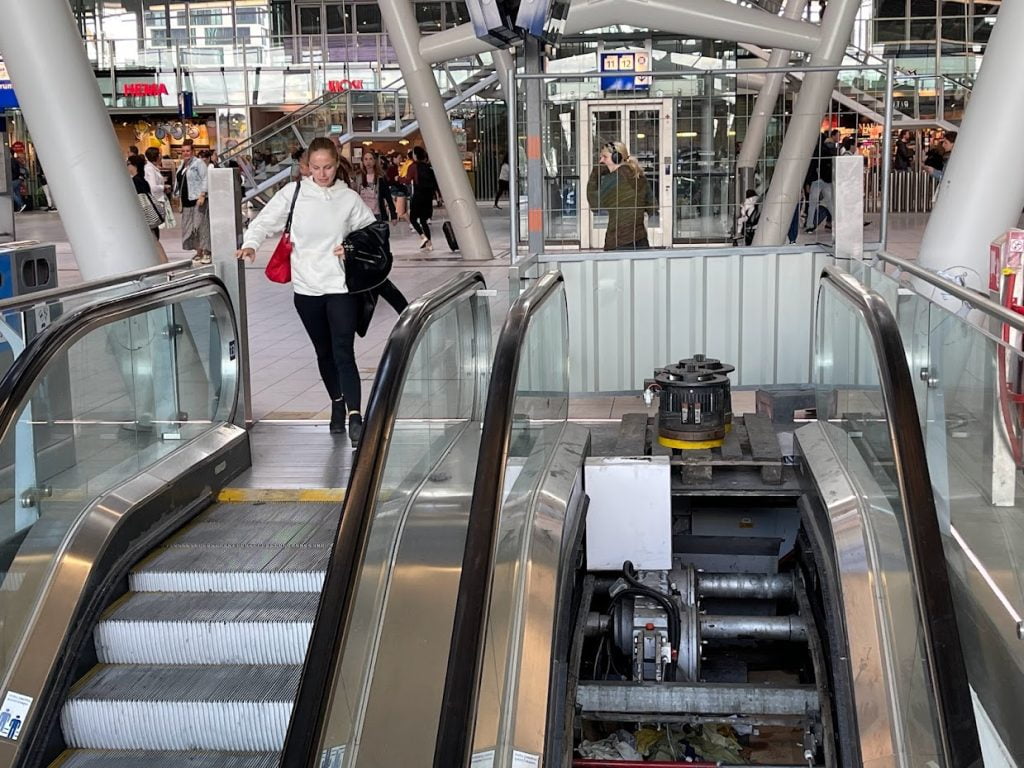The elevator to the platform and the train means real freedom for many.
Public transport is an important part of many people's daily lives, especially for those who rely on wheelchairs. For these people it is essential that the stations and trains are accessible. Unfortunately, many wheelchair users are faced with obstacles that limit their mobility, such as faulty lifts in stations. People using wheelchairs know that the availability of working lifts in stations is essential. But for those responsible in those stations or the technical service, this is often not so urgent.
Stories about a lack of materials that prevent the repair from being carried out are not a problem for the traveler as far as we are concerned. On the contrary, preventing the deprivation of liberty of those in need should be high on the agenda of all those responsible.
A faulty lift in a station can be a huge challenge for wheelchair users who rely on these lifts to get from one platform to another. It could mean interrupting or canceling their trip altogether. This not only affects their own plans, but can also lead to delays and other problems for other travelers.
out of order
In most cases, people want to get away with a sign saying 'defective', 'out of service' or 'temporarily unavailable', but that is outdated and shows laziness. Coming up with a good alternative to still help this target group to get to the platform does not seem to us to be a superfluous step. There are plenty of technical means for this that can be used as an emergency measure. The will to use them as an emergency measure must be there.
There is also a lot you can do preventively. One can think of concluding better contracts with technical companies whereby, within the SLA, the maximum times are included, regardless of all force majeure. Offering alternatives to travelers must be the primary element of the solution.

According to recent research, malfunctioning elevators in stations are a common problem. The report "Accessibility Study 2020" of the Alliance for Accessible Public Transport (ATO) shows that about a third of the stations in the Netherlands are not fully accessible to wheelchair users. And while some of these stations are working on improvements, the problem persists.
An alternative may be to temporarily not use the platform, because it does not meet all the conditions for offering transport to the target group. By the way, what good is a platform where the train stops where you cannot board. Older people who have difficulty walking also like to use the escalator or the station lift. The same problems apply to them.
A journey by public transport often makes travelers discouraged, especially because you often find out when you're standing in front of the malfunctioning elevator and can't go anywhere. Examples abound, last weekend the lift in Leiden station was out of service and Simone could not take the sprinter to The Hague Central. The elevator in Geldrop station was a problem for Niels, because it has been broken for months due to vandalism. But even that is no reason not to restore them.
One of the biggest challenges for wheelchair users is finding alternative routes when a lift breaks down. This may mean taking a detour or forgoing their trip altogether. In some cases, it can even lead to dangerous situations, such as when travelers are forced to use the stairs.
To address these issues, various interest groups and individuals are calling on transport companies and the government to invest more in accessibility. This includes not only repairing and maintaining elevators, but also improving the general infrastructure of stations and trains. The importance of accessibility cannot be overstated. For wheelchair users, it is essential to be able to participate in society and enjoy the same rights as everyone else.



